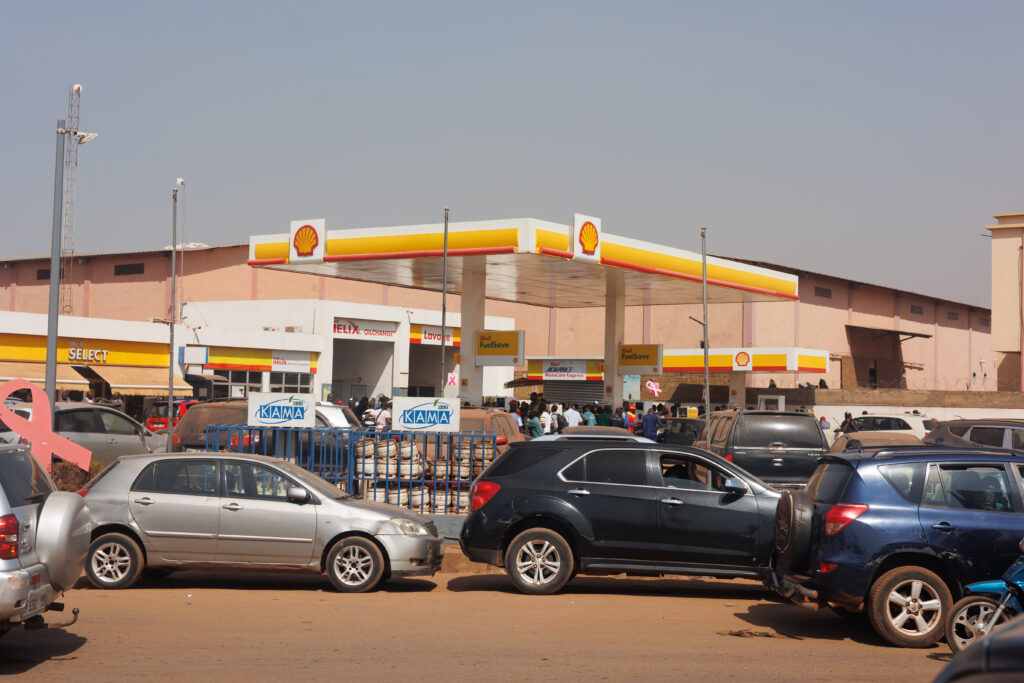Crippling fuel shortages in Mali’s capital Bamako have eased after the military escorted some convoys and officials agreed an unofficial truce with jihadists who had imposed a blockade on tanker convoys for weeks and choked the landlocked country.Since September, militants from the Al-Qaeda-affiliated Group for the Support of Islam and Muslims (JNIM) have severed fuel supplies to several cities in the arid west African nation.But electricity supplies are still scarce in Bamako and most districts only have about six hours of power per day or even less.The snaking queues at petrol stations have, however, dwindled over the past few days.”I can’t believe it,” said one motorist, who spoke to AFP on Friday on condition of anonymity.”The queue here stretched for at least two kilometres (1.2 miles). But just now I only had to wait a few minutes to be served.”While traffic has almost returned to normal, some petrol stations that closed at the start of the blockade have not yet reopened, AFP journalists reported.”We hope the problem is solved once and for all,” said another Bamako resident. “But I still fill up whenever I get the chance because I’m still not very reassured.” – Unofficial truce -Fuel tanker convoys have started returning to Bamako due to escorts provided by the army and Russian paramilitaries from the Africa Corps — the successor to the Wagner group — under aerial surveillance.Some have arrived under army escort from Niger, an ally that, like Mali, is also run by a military junta.A security source said supplies of fuel had improved both because of the extensive army operation and a dip in JNIM attempts to maintain the blockade.”The question is whether this escort strategy, which is extremely costly in terms of resources, is viable in the long term,” the source added.Malian authorities widely reported the arrival of 82 tanker trucks escorted by the Nigerien army.”This mechanism will ensure the proper and regular supply of Mali,” a government official told AFP.Some sources have also invoked the existence of an unofficial truce between the jihadists and the government, explaining the calm felt in the capital. “The government signed a truce with the jihadists,” said a member of the National Transitional Council (CNT), the legislative body of the ruling military. This arrangement, negotiated a month ago during the release by JNIM of an Emirati hostage for the record sum of $50 million is, however, about to expire.In anticipation of the end of this truce, which has never been acknowledged by the authorities, the jihadists announced last week they would intensify attacks. – Regions still struggling -“We are worried,” an elected official from the Sikasso region (southeast) told AFP. “The truce negotiated between the jihadists and the government allowed this recovery, yet we learn that this truce is ending,” the CNT member added.”If necessary, we will sign 20 truces if it is useful,” the CNT member told AFP. Humanitarian flights, interrupted at the height of the crisis due to lack of fuel, have resumed about three times a week “to the northern and central regions”, an NGO source told AFP.The situation remains difficult in the rest of the country, where several localities in the south and centre are under jihadist blockade and where fuel convoys are slow to arrive.In Sikasso in the southeast, relatively spared in recent weeks, “the situation has worsened”, a resident said.”Last night, only four stations were serving fuel, creating long queues. We feel that everything has been directed towards Bamako,” he continued. In the central cities of Segou and Mopti, fuel is still rationed. A resident of Mopti said that since September, no petrol station got supplies.”We have no electricity, and water problems have added to all this,” he said.”Mali is not limited to Bamako,” he added.
